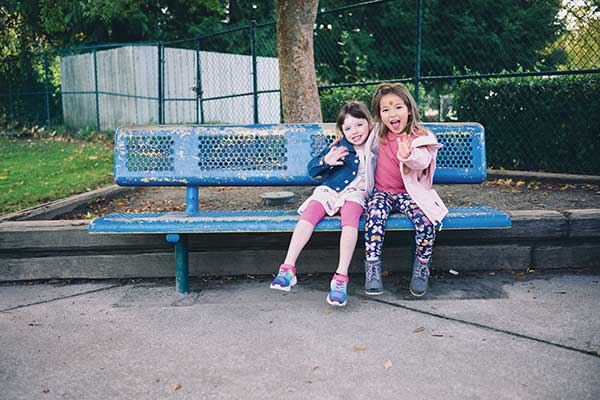Cultivating Positivity and Hope In a Troubled World
Friday, June 25, 2021
SUMMER TIPS FOR HOME OWNERS
Tuesday, June 22, 2021
5 SIMPLE, SUSTAINABLE BACKYARD IMPROVEMENTS
(BPT) - One in three consumers say they have increased their efforts to incorporate environmentally friendly practices, and 70% prefer to purchase eco-friendly products, according to a recent Trusted Media Brands survey. Some of the easiest first steps toward a more sustainable lifestyle can be taken right in your own backyard. Create an outdoor oasis with these simple and sustainable tips - minimal green thumb required.
Save time - and water - with low-maintenance landscaping. Plant the seed for a hassle-free backyard by planting perennials or shrubs, which require minimal upkeep. Support your local environment by choosing native plants, as they typically require less watering, fertilizer and pesticides, and are beneficial to pollinators. Plus, native plants can store excess carbon dioxide for improved air quality.
Collect and reuse rainwater. Conserving rainwater is a simple way to make your outdoor space more sustainable. Install a reusable water drum in your yard below your gutter spouts to collect water when it rains. Once full, use the rainwater to water plants or clean exterior surfaces like decking, siding and outdoor furniture.
Choose energy-efficient LED lighting. Replace outdated, energy-draining deck and landscape lighting with energy-efficient or solar-powered outdoor lights. LED lights are extremely long-lasting, easy to install and use significantly less energy compared to more commonly used incandescent lights. Not only can you enjoy your yard long after the sun goes down, but you can feel good knowing you are making a sustainable choice.
Grow "up." A vertical garden can be an attractive, artful addition to any yard or deck, freeing up valuable ground in small spaces without compromising plush greenery. To start, build a frame against a wall or fence, or plant around an existing structure like a pergola or latticework - all of which work great for climbing plants such as vines, wisteria, honeysuckle and ivy.
Use wood-alternative decking. Among the greenest products available for the home is composite decking, such as Trex, which is manufactured from more than 95% recycled materials. Unlike wood, composite decking resists fading, staining, scratching and mold, and needs only an occasional soap-and-water cleaning. Since composite decking never needs to be stripped, stained or painted, no environmentally harmful chemicals are required. For green bonus points, take items such as plastic grocery bags and newspaper sleeves to one of the many NexTrex plastic film recycling drop-off locations nationwide. Instead of ending up in landfills, these polyethylene plastic films can be repurposed into high-performance composite decking.
These easy upgrades will not only benefit the planet but also create an outdoor space that will leave your neighbors green with envy.
Saturday, June 5, 2021
HOW PARENTS CAN HELP CHILDREN BUILD SOCIAL SKILLS

(Family Features) While adults may joke about needing to relearn how to be around others in a post-pandemic world, children can also benefit from a refresh of certain soft skills – especially young children who may not remember pre-pandemic life.
Building on these skills can also help children prepare for a successful return to school. In fact, data from Mintel shows parents’ top learning priorities for their children prior to entering grade school are how to play well with others (67%) and good manners (66%).
“Summertime is a great time for families to help their children focus on social skills that may not have gotten much attention this past year, particularly if families were social distancing or in quarantine,” said Taunya Banta, inclusion services manager for KinderCare Learning Centers. “Parents can set their children up for success when school starts again in the fall by helping them work on these soft skills in relaxed settings like family gatherings and on the neighborhood playground.”
Consider these ways parents can help their children build social skills.

Name emotions: Naming emotions is an important part of learning how to regulate them. If your children don’t understand what emotions they’re experiencing, they may be confused or upset by how they feel and that could amplify the feelings and make it more difficult to regulate the emotions.
Talk with your children about your own feelings, or the feelings of characters in books, to help them learn to identify emotions and appropriate ways to address those feelings. For example, “I’m sad, but I know a hug will help me feel better,” or “I’m mad and that’s OK. It’s not OK to hit, but I can punch a pillow or stomp my feet to get the feelings out of my body.” As a family, try practicing some simple emotion regulation strategies like deep breathing. To help younger children breathe deep, hold up two fingers and ask them to smell the flower as they inhale (one finger) and blow out the candle as they exhale (the other).
Play with other children: Play gives children an opportunity to freely express their emotions and thoughts, work out feelings and explore relationships in a safe, lighthearted way. If you feel comfortable and can follow health and safety guidelines, visit a playground or set up play dates with other children of similar ages then take a step back to let the children play together. If your children aren’t ready to play with others, allow them to stay close to you until they feel ready to join the other children.
Once the children are playing together, observe their interactions and talk with your children (in the moment or later) about how they felt. If they had fun, ask what they enjoyed. If disagreements or awkward moments came up, help your children problem-solve ways they could address those situations next time.
“Most importantly, remember children of all ages have an incredible capacity for resiliency,” Banta said. “Just knowing they have a steady base to return to, a safe place where they’re loved and appreciated for who they are, can give children the courage they need to face the challenge of a new or uncertain social situation with self-confidence and courage.”
For more tips to help your children build or improve their social skills, visit kindercare.com. SOURCE:KinderCare
Friday, June 4, 2021
RESTORING CORAL REEFS AROUND THE WORLD
Restoring Coral Reefs Around the World

(Family Features) If the world does nothing, according to the Intergovernmental Panel on Climate Change, scientists estimate 90% of the world's tropical reefs will be gone by 2043, impacting nearly 500 million people who depend on them for food, income and coastal protection.
However, there are groups working to restore coral reefs around the globe. For example, the SHEBA® brand started work on the world's largest coral restoration program, which aims to restore more than 185,000 square meters of coral reefs around the world by 2029. Hope Reef, the beginning of this program, has been unveiled off the coast of Sulawesi, Indonesia, and was built to spell out the word “H-O-P-E” on the seabed using restored coral to show the power of positive change and spark action.
Since the start of the project two years ago, coral cover increased from 5% to 55%, fish abundance increased and species such as sharks and turtles have returned. For more information and to help support the efforts, visit the Channel that Grows Coral on YouTube. All content views contribute money to coral reef regeneration.

Sheba
Navigating the Daily Grind: Practical Tips for Families to Handle Life's Pressures with Grace Modern family life often feels like a hi...

-
If you don’t already have half a roll of leftover wallpaper tucked away somewhere in your home, drop in to your local supply store to see...
-
December is a great month to cozy things up at home. The brighter and warmer a house looks and feels, the happier you will be. That...
-
(Family Features) Your baby’s first holiday season is one to treasure. While you’re busy making memories, remember enjoying a meal toget...



